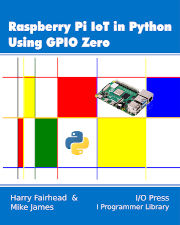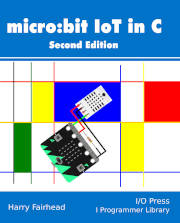Page 72
example.c
This is the combined code from the chapter - the json files are as for example given ealier
#define PY_SSIZE_T_CLEAN
#include <Python.h>
static PyObject *stringRaw(PyObject *self, PyObject *args)
{
char *name;
if (!PyArg_ParseTuple(args, "s", &name))
return NULL;
printf("%s\n", name);
for (int i = 0; name[i]; i++)
{
printf("%02X ", (unsigned char)name[i]);
}
printf("\n");
Py_RETURN_NONE;
}
static PyObject *stringRawLen(PyObject *self, PyObject *args)
{
char *name;
Py_ssize_t len;
if (!PyArg_ParseTuple(args, "s#", &name, &len))
return NULL;
printf("%s\n", name);
printf("%d\n", (int)len);
for (int i = 0; i < len; i++)
{
printf("%02X ", (unsigned char)name[i]);
}
printf("\n");
Py_RETURN_NONE;
}
static PyObject *stringPBuffer(PyObject *self, PyObject *args)
{
Py_buffer myBuf;
if (!PyArg_ParseTuple(args, "s*", &myBuf))
return NULL;
char *myString = (char *)myBuf.buf;
printf("%s\n", myString);
for (int i = 0; i < myBuf.len; i++)
{
printf("%02X ", (unsigned char)myString[i]);
}
printf("\n");
PyBuffer_Release(&myBuf);
Py_RETURN_NONE;
}
static PyObject *stringEncode(PyObject *self, PyObject *args)
{
char *name = NULL;
if (!PyArg_ParseTuple(args, "es", "cp1252", &name))
return NULL;
printf("%s \n", name);
for (int i = 0; name[i]; i++)
{
printf("%02X ", (unsigned char)name[i]);
}
printf("\n");
PyMem_Free(name);
Py_RETURN_NONE;
}
static PyObject *stringEncode2(PyObject *self, PyObject *args)
{
char *name = NULL;
Py_ssize_t len;
if (!PyArg_ParseTuple(args, "es#", "utf-16", &name, &len))
return NULL;
printf("%s \n", name);
for (int i = 0; i < len; i++)
{
printf("%02X ", (unsigned char)name[i]);
}
printf("\n");
PyMem_Free(name);
Py_RETURN_NONE;
}
static PyObject *stringEncodeAllocate(PyObject *self,
PyObject *args)
{
Py_ssize_t len = 25;
char *name = malloc(sizeof(char) * (len + 1));
if (!PyArg_ParseTuple(args, "es#", "cp1252", &name, &len))
return NULL;
printf("%d\n", (int)len);
printf("%s \n", name);
for (int i = 0; i < len; i++)
{
printf("%02X ", (unsigned char)name[i]);
}
printf("\n");
free(name);
Py_RETURN_NONE;
}
static PyObject *sequenceElements(PyObject *self, PyObject *args)
{
int number;
double x, y;
char *name = NULL;
if (!PyArg_ParseTuple(args, "(idds)", &number, &x, &y, &name))
return NULL;
printf("%d %f %f %s \n", number, x, y, name);
Py_RETURN_NONE;
}
static PyMethodDef AddMethods[] = {
{"stringRaw", stringRaw, METH_VARARGS, "an example"},
{"stringRawLen", stringRawLen, METH_VARARGS, "an example"},
{"stringPBuffer", stringPBuffer, METH_VARARGS, "an example"},
{"stringEncode", stringEncode, METH_VARARGS, "an example"},
{"stringEncode2", stringEncode2, METH_VARARGS, "an example"},
{"stringEncodeAllocate", stringEncodeAllocate, METH_VARARGS, "an example"},
{"sequenceElements", sequenceElements, METH_VARARGS, "an example"},
{NULL, NULL, 0, NULL} // sentinel
};
static struct PyModuleDef addmodule = {
PyModuleDef_HEAD_INIT,
"example",
"C library to test API",
-1,
AddMethods};
PyMODINIT_FUNC PyInit_example(void)
{
return PyModule_Create(&addmodule);
}
test.py
import example
example.stringRaw("Hello World")
example.stringRawLen("Hello \0 World")
example.stringPBuffer("Hello \0 World")
example.stringEncode("Hello World")
example.stringEncode("\u2020")
example.stringEncode2("Hello World")
example.stringEncodeAllocate("Hello World")
example.sequenceElements((2,1.2,1.3,"test"))


